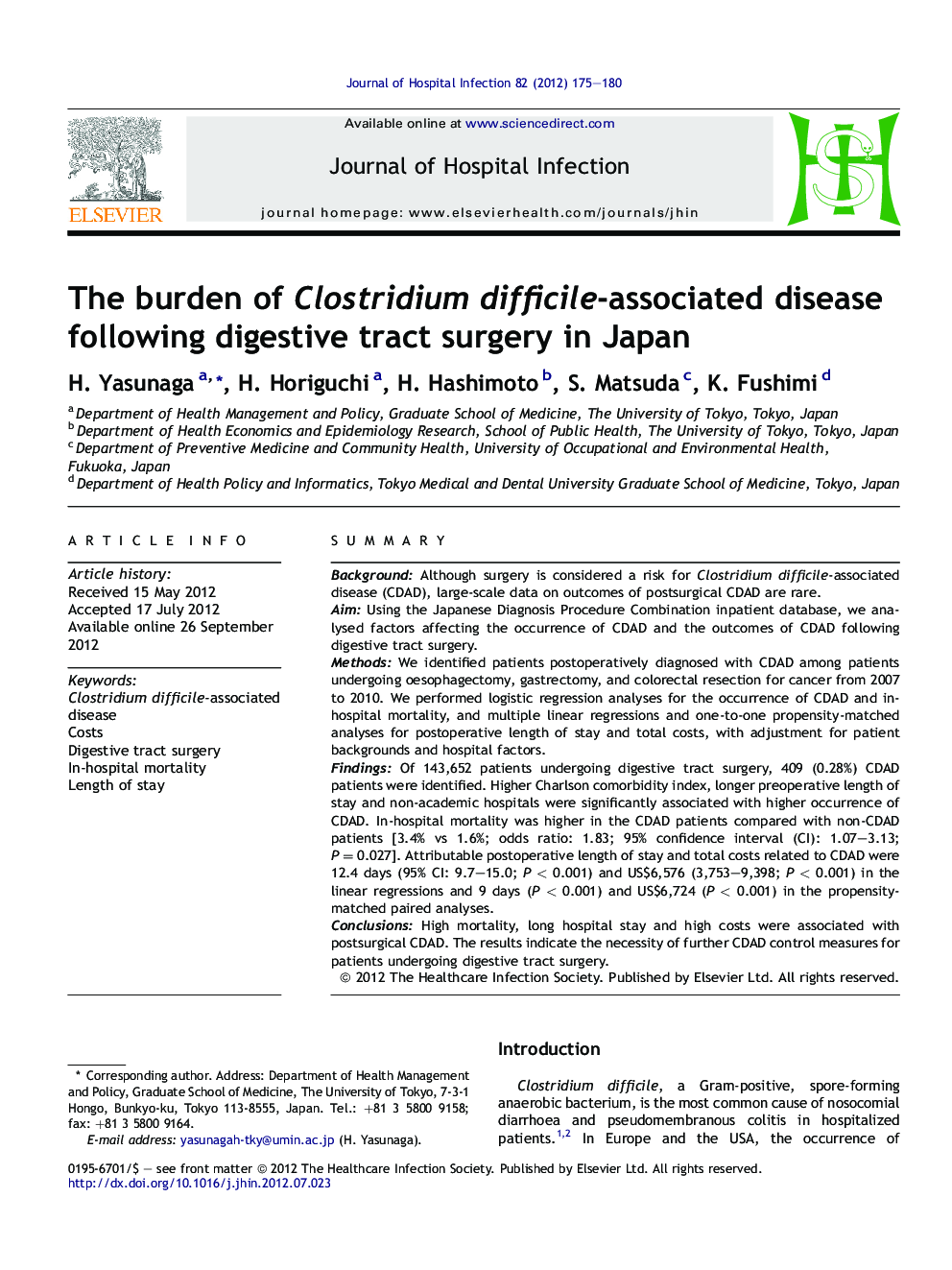| Article ID | Journal | Published Year | Pages | File Type |
|---|---|---|---|---|
| 3371845 | Journal of Hospital Infection | 2012 | 6 Pages |
SummaryBackgroundAlthough surgery is considered a risk for Clostridium difficile-associated disease (CDAD), large-scale data on outcomes of postsurgical CDAD are rare.AimUsing the Japanese Diagnosis Procedure Combination inpatient database, we analysed factors affecting the occurrence of CDAD and the outcomes of CDAD following digestive tract surgery.MethodsWe identified patients postoperatively diagnosed with CDAD among patients undergoing oesophagectomy, gastrectomy, and colorectal resection for cancer from 2007 to 2010. We performed logistic regression analyses for the occurrence of CDAD and in-hospital mortality, and multiple linear regressions and one-to-one propensity-matched analyses for postoperative length of stay and total costs, with adjustment for patient backgrounds and hospital factors.FindingsOf 143,652 patients undergoing digestive tract surgery, 409 (0.28%) CDAD patients were identified. Higher Charlson comorbidity index, longer preoperative length of stay and non-academic hospitals were significantly associated with higher occurrence of CDAD. In-hospital mortality was higher in the CDAD patients compared with non-CDAD patients [3.4% vs 1.6%; odds ratio: 1.83; 95% confidence interval (CI): 1.07–3.13; P = 0.027]. Attributable postoperative length of stay and total costs related to CDAD were 12.4 days (95% CI: 9.7–15.0; P < 0.001) and US$6,576 (3,753–9,398; P < 0.001) in the linear regressions and 9 days (P < 0.001) and US$6,724 (P < 0.001) in the propensity-matched paired analyses.ConclusionsHigh mortality, long hospital stay and high costs were associated with postsurgical CDAD. The results indicate the necessity of further CDAD control measures for patients undergoing digestive tract surgery.
